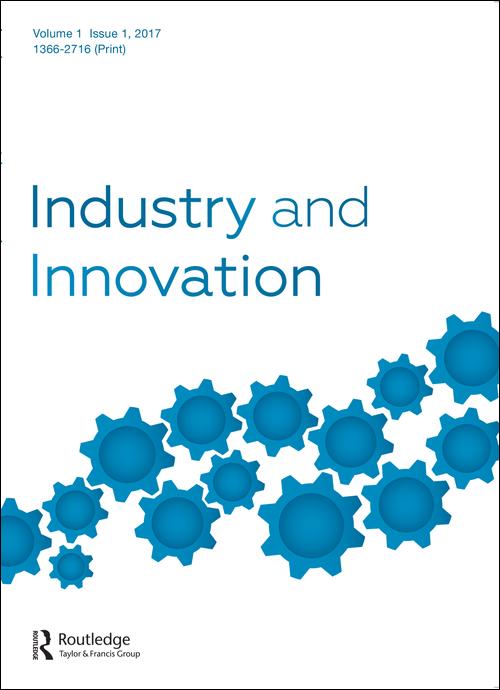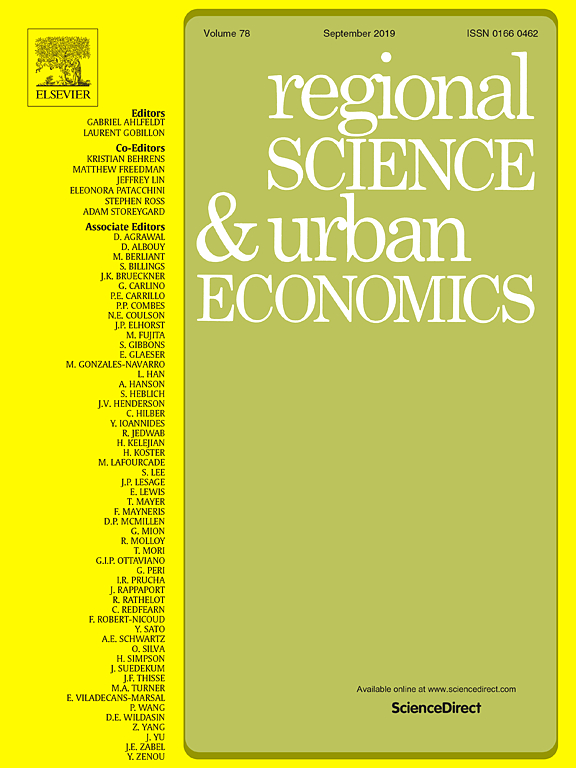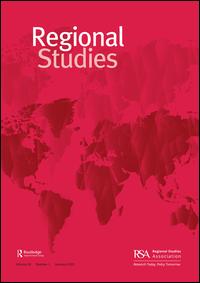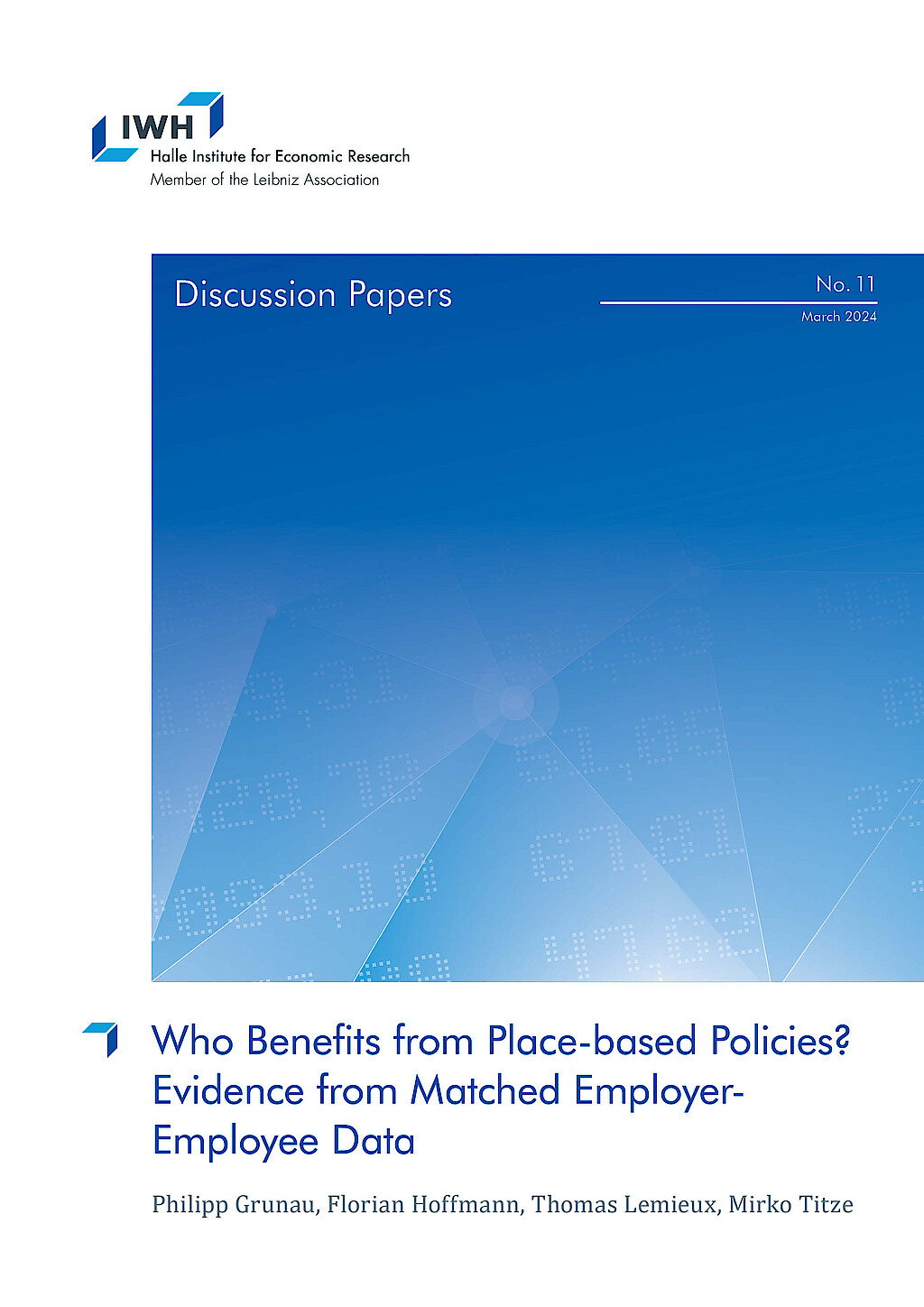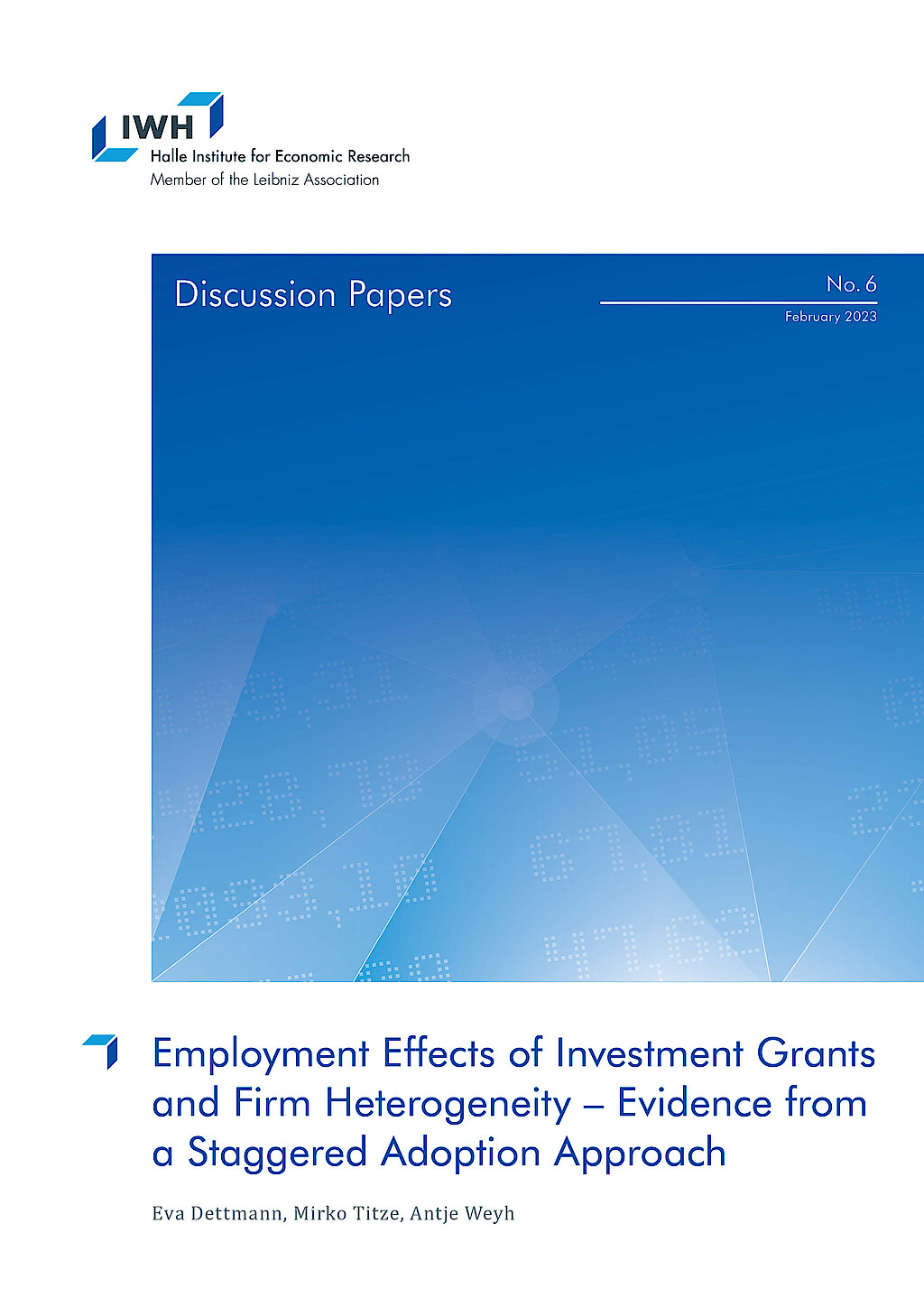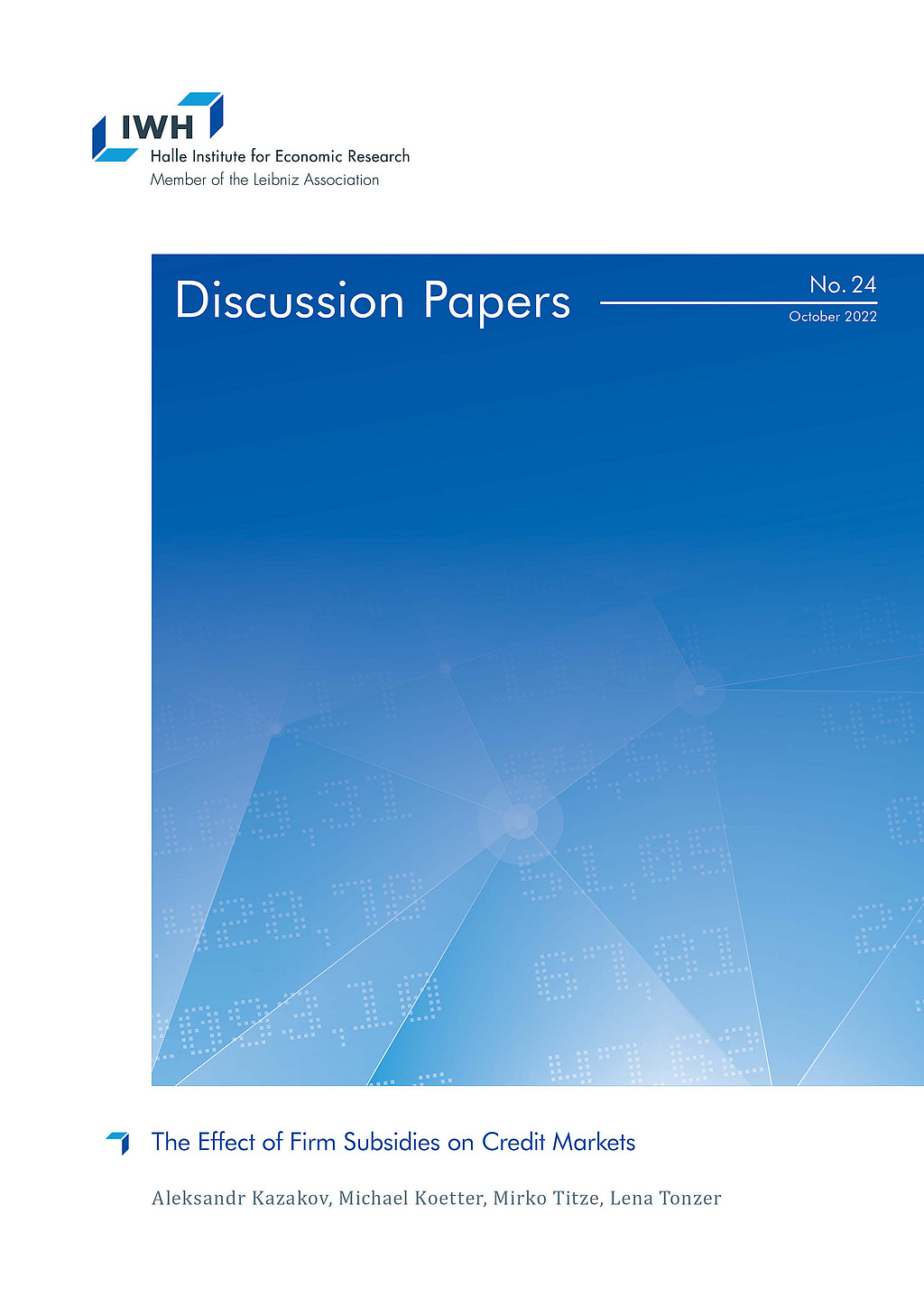PD Dr. Mirko Titze

Aktuelle Position
seit 4/14
Leiter des Zentrums für evidenzbasierte Politikberatung (IWH-CEP)
Leibniz-Institut für Wirtschaftsforschung Halle (IWH)
seit 1/13
Leiter der Forschungsgruppe Evaluierung von Subventionsprogrammen
Leibniz-Institut für Wirtschaftsforschung Halle (IWH)
Forschungsschwerpunkte
- Konvergenz regionaler Wirtschaftsentwicklung (Fokus Ostdeutschland, neue Mitglieder der EU)
- Wirksamkeit von Instrumenten der Wirtschaftsförderung
Mirko Titze ist seit Juli 2006 als wissenschaftlicher Mitarbeiter am IWH tätig. Er forscht zu Wirkungen von Subventionsprogrammen für Unternehmen und Regionen.
Mirko Titze studierte und promovierte an der Brandenburgischen Technischen Universität Cottbus-Senftenberg und habilitierte an der Martin-Luther-Universität Halle-Wittenberg. Von 2011 bis 2013 übernahm er eine dreisemestrige Lehrstuhlvertretung des Fachgebiets Volkswirtschaftslehre, insbesondere Raumwirtschaftspolitik (vormals Professor Dr. Franz-Josef Bade) an der Fakultät Raumplanung der Technischen Universität Dortmund.


